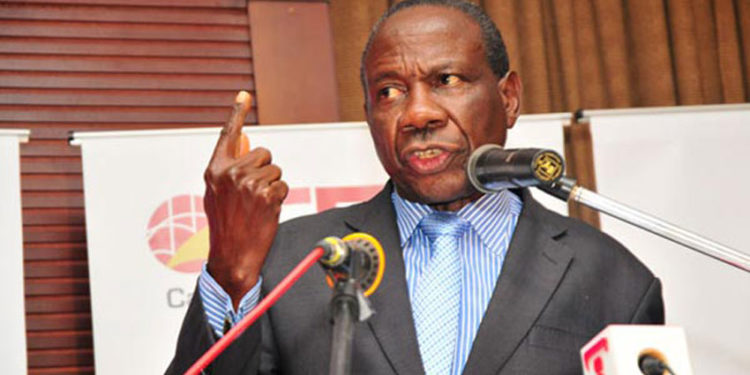The Ministry of Finance, Planning, and Economic Development has kickstarted the process for the 2024/2025 national budget.
The budget is premised on a robust target of achieving a 6 percent growth in the economy for the upcoming year, and a promising 7 percent growth in the medium term.
The theme, “Full Monetization of Uganda’s Economy Through: Commercial Agriculture, Industrialization, Expanding and Broadening Services, Digital Transformation, and Market Access”, remains unchanged from the current fiscal year. This comprehensive approach aims to reshape Uganda’s economic landscape.
However, amidst this ambitious plan, the nation faces growing tensions with key development partners, led by the World Bank, which has suspended new loans due to human rights concerns.
Finance Minister Matia Kasaija assured that Uganda’s economic pivot will involve transitioning from raw material dependence to a manufacturing and knowledge-based economy. The objective: to enhance the business environment’s competitiveness.
In light to the Budget theme, Prime Minister Robinah Nabbanja emphasized a collective effort towards elevating 39 percent of the population from subsistence to a monetized economy. She underscored the government’s unwavering commitment to peace, security, and the protection of fundamental human rights.
The Ministry of Finance projects an increase in preliminary domestic revenue to 29.958 trillion Shillings for the next fiscal year, up from the current year’s target of 29.672.3 trillion. The total resource envelope is estimated at an impressive 52.72 trillion Shillings.
In light of potential reductions in external budgetary support, the government is implementing strategies to curtail the public debt stock. This includes a shift towards concessional loans and ramping up domestic revenue mobilization.
Minister Kasaija reported significant strides in the 2022/2023 budget, with the economy rebounding from COVID-19 impacts, achieving a growth rate of 5.5 percent, outperforming the Sub-Saharan Africa average of 3.6 percent for the same period.
The forthcoming budget focuses on nurturing an integrated, self-reliant economy through strategic measures, including the Parish Development Model, commercialization of agriculture, and investment in key sectors such as oil and gas, mineral resources, and tourism.
A substantial allocation of 354 million dollars has been set aside for mechanization, research, and scaling up small-scale solar power usage, among other initiatives.
Civil society leaders praised the government’s economic management during challenging times, noting that Uganda’s inflation rate, once at a record high of 10.3 percent, now stands at 3.5 percent, the lowest in eastern Africa.
However, concerns were raised about inter-agency conflicts, which were seen as a drain on taxpayer resources. Advocates called for improved coordination.
President Yoweri Museveni, through Prime Minister Nabbanja, reaffirmed his belief in the Parish Development Model’s transformative potential for community livelihoods.
In the pursuit of economic growth, the budget for FY 2024/2025 will concentrate on bolstering security, governance, rule of law, macroeconomic stability, and the development of critical sectors like agriculture and the burgeoning oil and gas industry.
As Uganda steers towards an ambitious economic transformation, collaboration between stakeholders will be vital in building an independent, self-sustaining economy that propels the nation towards a prosperous future.
Do you have a story in your community or an opinion to share with us: Email us at editorial@watchdoguganda.com













